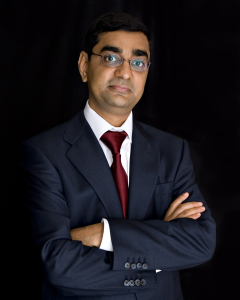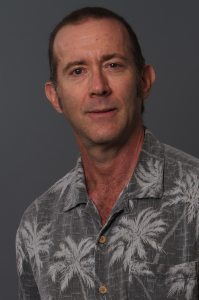Branch Prediction and the Performance of Interpreters – Don’t Trust Folklore
Erven Rohou, Bharath Narasimha Swamy, and André Seznec (Inria, France)
Optimizing the flash-RAM energy trade-off in deeply embedded systems
James Pallister, Kerstin Eder, and Simon J. Hollis (University of Bristol)
EMEURO: A Framework for Generating Multi-Purpose Accelerators via Deep Learning
Lawrence McAfee and Kunle Olukotun (Stanford University)
Optimizing and Auto-Tuning Scale-Free Sparse Matrix-Vector Multiplication on Intel Xeon Phi
Wai Teng Tang (Institute of High Performance Computing, A*STAR, Singapore), Ruizhe Zhao (Peking University, China), Mian Lu (Institute of High Performance Computing, A*STAR, Singapore), Yun Liang (Peking University, China), Huynh Phung Huynh (Institute of High Performance Computing, A*STAR, Singapore), Xibai Li (Peking University, China), and Rick Siow Mong Goh (Institute of High Performance Computing, A*STAR, Singapore)
Data Provenance Tracking for Concurrent Programs
Brandon Lucia (Carnegie Mellon University) and Luis Ceze (University of Washington)
Locality Aware Concurrent Start for Stencil Applications
Sunil Shrestha (University of Delaware), Joseph Manzano, Andres Marquez, and John Feo (Pacific Northwest National Laboratory), and Guang R. Gao (University of Delaware)
Pan Pacific Buffet
Spinach and Tofu Soup
Spicy Firecracker Spinach, Orange Sesame Dressing
Tofu Bean Curd and Cucumber Salad
Lemon Grass Basil Scented Basa With Coconut Green Curry Sauce
Orange Peel Chicken and Green Beans
Pork Pot Stickers
Stir Fried Vegetables
California Brown Rice
Mango Coconut Mousse
Lemon Burst Macaroon Bars
Royal Cup Dakota Roast Coffee, Decaffeinated, Hot Tea and Iced Tea
 Abstract: I will describe a decade-long, multi-disciplinary, multi-institutional effort spanning neuroscience, supercomputing, and nanotechnology to build and demonstrate a brain-inspired computer and describe the architecture, programming model, and applications. For more information, see: modha.org.
Abstract: I will describe a decade-long, multi-disciplinary, multi-institutional effort spanning neuroscience, supercomputing, and nanotechnology to build and demonstrate a brain-inspired computer and describe the architecture, programming model, and applications. For more information, see: modha.org.
Biography: Dr. Dharmendra S. Modha is an IBM Fellow and IBM Chief Scientist for Brain-inspired Computing. He is a cognitive computing pioneer who envisioned and now leads a highly successful effort to develop brain-inspired computers. The groundbreaking project, SyNAPSE, funded by DARPA to the tune of $53.5M, is multi-disciplinary, multi-national, multi-institutional and has had worldwide scientific impact. Its resulting revolutionary computing architecture and ecosystem break from the prevailing von Neumann paradigm and constitute a foundation for new classes of ultra-low-power, compact, real-time, multi-modal sensorimotor information technology systems. Dr. Modha has also made significant contributions to IBM businesses via innovations in caching mechanisms for storage controllers, clustering algorithms for services, and coding theory for disk drives. His work has been featured in Economist, Science, New York Times, BBC, Discover, MIT Technology Report, Associated Press, Popular Mechanics, Communications of the ACM, Forbes, Fortune, and IEEE Spectrum amongst thousands of media mentions. Author of over 60 papers and inventor of over 100 patents, he has won ACM’s Gordon Bell Prize, USENIX/FAST Test of Time Award, Best Paper Awards at ASYNC and IDEMI, First Place, Science/NSF International Science & Engineering Visualization Challenge, and is a Fellow of IEEE and World Technology Network. In 2013 and 2014, he was named as Best of IBM. On their 40th Anniversary, EE Times named Dr. Modha amongst 10 Electronics Visionaries to Watch. Dr. Modha received BTech from IIT Bombay in 1990 and PhD from UCSD in 1995.
Getting in Control of Your Control Flow with Control-Data Isolation
William Arthur (University of Michigan), Ben Mehne (University of California – Berkeley), and Reetuparna Das and Todd Austin (University of Michigan)
Checking Correctness of Code Generator Architecture Specifications
Niranjan Hasabnis, R. Sekar, and Rui Qiao (Stony Brook University)
Snapshot-based Loading-Time Acceleration for Web Applications
JinSeok Oh and Soo-Mook Moon (Seoul National University)
We will be attending a private showing of Beach Blanket Babylon from 5:45 pm – 7:15 pm along with PPoPP.
After the show you will have time for dinner on your own with colleagues and new friends.
Transportation
Buses will leave the Marriott at 4:10 pm and return at 7:15 pm and 10:15 pm.
If you wish to return via public transporation, you can do so via a combination of walking, trolley and BART in around one and half hours.
Dining
The North Beach area of San Francisco is known for its Italian heritage.
Here is a link to great pizza places on Yelp and a list of restaraunts close to the theatre.
| Bocce Café 478 Green @ Grant (415) 981-2044 www.boccecafe.com |
$$ ITALIAN Until 10:30 pm Distance to theatre: 2 blocks |
| Calzone’s 430 Columbus near Green (415) 397-3600 www.calzonesf.com |
$$ ITALIAN Until 1 am Distance to theatre: 1 1/2 blocks |
| Capp’s Corner 1600 Powell St. @ Green (415) 989-2589 www.cappscorner.com |
$$ ITALIAN Until 10:30 pm Distance to Theatre: 1/4 Block |
| Park Tavern 1652 Stockton St. near Filbert (415) 989-7300 www.parktavernsf.com |
$$$ NEW AMERICAN Until 10 pm Distance to theatre: 2 1/2 blocks |
| Piazza Pellegrini 659 Columbus @ Powell (415) 397-7355 www.piazzapellegrini.com |
$$ ITALIAN Until 10 pm Distance to theatre: 2 1/2 blocks |
| Trattoria Pinocchio 401 Columbus Ave. @ Vallejo (415) 392-1472 www.trattoriapinocchio.com |
$$ ITALIAN Until 11 pm Distance to theatre: 2 blocks |
| Antologia Vinoteca 515 Broadway @ Columbus (415) 274-8423 www.antologiasf.com |
LATIN AMERICAN WINE BAR Tapas (no full meals) Until midnight Distance to theatre: 3 1/2 blocks |
 Abstract: Languages, compilers, and computer-aided design tools will be essential for scalable quantum computing, which promises an exponential leap in our ability to execute complex tasks. LIQUi|> is a modular software architecture designed to simulate and control quantum hardware. It enables easy programming, compilation, and simulation of quantum algorithms and circuits, and is independent of a specific quantum architecture. This talk will focus on simulation of quantum algorithms in Quantum Chemistry and Materials as well as Factoring, Quantum Error Correction and compilation for hardware implementations (http://arxiv.org/abs/1402.4467).
Abstract: Languages, compilers, and computer-aided design tools will be essential for scalable quantum computing, which promises an exponential leap in our ability to execute complex tasks. LIQUi|> is a modular software architecture designed to simulate and control quantum hardware. It enables easy programming, compilation, and simulation of quantum algorithms and circuits, and is independent of a specific quantum architecture. This talk will focus on simulation of quantum algorithms in Quantum Chemistry and Materials as well as Factoring, Quantum Error Correction and compilation for hardware implementations (http://arxiv.org/abs/1402.4467).
Biography: Dave came to Microsoft in 1995 and helped create the “Blender” (digital video post-production facility). He designed and worked on a Broadband MSN offering when he became architect for the Handheld PC v1 & v2 as well as AutoPC v1 and Pocket PC v1. He moved to Intelligent Interface Technology and resurrected SHRDLU for Natural Language research as well as building a state of the art Neural Network based Speech Recognition system. For the Mobile Devices Division he implemented secure DRM on e-books and Pocket PCs. He created and was director of ePeriodicals before taking on the role of Architect for Emerging Technologies. This lead to starting the Machine Learning Incubation Team and then architect for Parallel Computing Technology Strategy working on Big Data and now Quantum Computing. He has over 20 patents for Microsoft and 9 Ship-It awards. He started coding professionally in 1973, worked in the AI labs at CMU while obtaining a BSEE and MSIA and was at DEC for 13 years (ask him about DIDDLY sometime ;).
PSLP: Padded SLP Automatic Vectorization
Vasileios Porpodas (University of Cambridge), Alberto Magni (University of Edinburgh), and Timothy M. Jones (University of Cambridge)
A Graph-Based Higher-Order Intermediate Representation
Roland Leißa, Marcel Köster, and Sebastian Hack (Saarland University)
Scalable Conditional Induction Variable (CIV) Analysis
Cosmin E. Oancea (University of Copenhagen) and Lawrence Rauchwerger (Texas A&M University)
Optimizing Binary Translation for Dynamically Generated Code
Byron Hawkins and Brian Demsky (University of California, Irvine) and Derek Bruening and Qin Zhao (Google, Inc.)
MemorySanitizer: fast detector of uninitialized memory use in C++
Evgeniy Stepanov and Konstantin Serebryany (Google)
